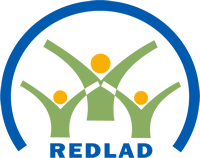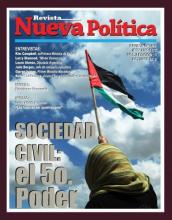The Network's Beginnings
Weak democratic institutions and a failure to improve the quality of life for millions have ushered in a new era of populism and authoritarianism in Latin America. The result: a step back for the rule of law and democracy. Organizations promoting human rights and democracy have stepped in to confront this challenge, but without a platform for exchanging ideas and coordinating activities, successes are only short-lived.
In an effort to fill this gap and strengthen the capacity of these organizations, the a meeting of civil society organizations was coordinated in Panama City, Panama to discuss the creation of a regional network. More than 140 leaders from non-governmental organizations, unions, judiciaries, and the public sector came together for the forum. Participants identified how to best consolidate the network so that it could defend and advance democratic practices in the region.
The New Network
Through a consensus, the participants voted for the creation of a new network, independent but affiliated with the World Movement for Democracy. Representatives were elected to represent their countries and their Sub-regions in the Network. Now that the Network exists, the challenge before it is to effectively promote democratic values, protect civil society and launch new initiatives and coordinated efforts in response to the obstacles to democracy.
Democracy and Development
The meeting provided an opportunity for the open exchange of ideas and experiences. The Mayor of Panama City, Mr. Juan Carlos Navarro, introduced the importance of participatory democracy and how the political parties, NGOs, unions and all the sectors of civil society must work together for the common good. Former Peruvian President Toledo in the inaugural speech expressed the relationship between democracy and development, saying “If we are not capable of reducing poverty, we will be encouraging cheap populism, which does serious damage to democracy”.
Mr. Carl Gershman, President of the National Endowment for Democracy, a private organization in Washington, DC, issued an urgent appeal for an improved democracy in order to halt the backlash occurring in the region. Similarly, US Congressman Gregory Meeks expressed his support for the free agreements and the integration of efforts among all the actors in the region, while requesting democratic agendas with “social faces”. He also congratulated the involvement of student movements in the strengthening of democracy in cases like Venezuela.
Role of Women
Special attention in the Assembly was paid to the role of women in Latin American countries, holding a special session in the introductory open forum with a panel with women leaders from across the region. It was an opportunity to share experiences on improvements and necessities in the region. All agreed that the voice and participation of women is not a gift granted by the power structure, but rather a right and a fundamental tool if we want to achieve stable and representative democracies and real sustainable development.
Priorities in our Agenda
The participants were actively involved in open discussion in Topical workshops and after hour’s meetings. Topical workshops included:
- Democracy and Role of Women
- Ethnic Minorities and Young Groups: Interactive role and challenges
- Governance, Democracy, Development and Consequences of Social Exclusion: Poverty, inequality and difficulties of current institutions to fulfill social requirements of democracy
- Challenges of Business Sectors to promote democracy and support civil society Sector
The participants developed new approaches to both new and old problems. Those NGOs, unions, political parties and leaders involved were able to achieve a bit of the innovation necessary to face the tremendous challenges ahead.




